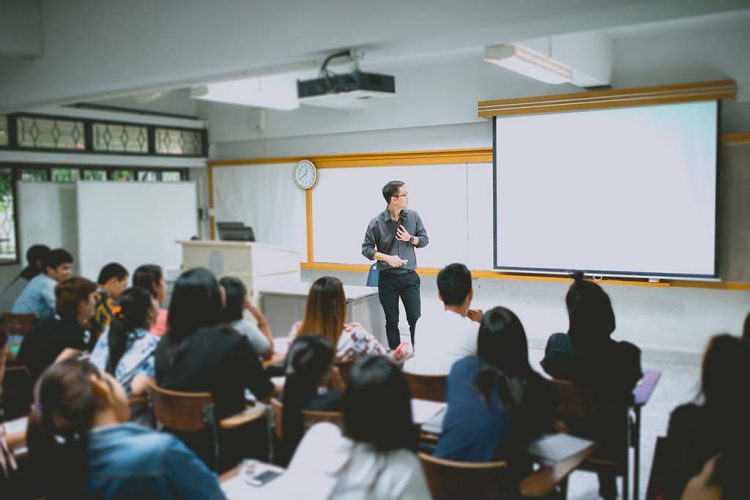Achieve Academic Success with Primary Science Tuition Singapore
Achieve Academic Success with Primary Science Tuition Singapore
Blog Article
Discover the Important Benefits of Recognizing Key Scientific Research for Young Students
The significance of key science education and learning for young students expands far beyond mere expertise acquisition; it offers as a fundamental pillar in creating necessary abilities such as vital thinking, analytic, and creativity. Engaging with scientific concepts via interactive and inquiry-based activities not just cultivates curiosity but additionally lays the foundation for durable, confident students.
Enhancing Essential Thinking Abilities
Fostering important thinking skills in young learners is necessary for their cognitive development and future academic success. Essential thinking enables children to assess details, review proof, and make informed decisions, which are vital skills in today's information-rich society. By taking part in scientific query, young learners can enhance these abilities as they discover concepts with experimentation, reasoning, and observation.
In main science education, educators can help with important reasoning by urging pupils to ask concerns, develop hypotheses, and carry out experiments. This hands-on method enables children to exercise problem-solving and establish rational reasoning abilities. For example, when trainees check out the residential properties of products or the concepts of movement, they discover to examine their searchings for seriously and reason based upon proof.
Furthermore, discussions and collaborative tasks can promote critical reasoning by giving chances for learners to verbalize their ideas, difficulty presumptions, and think about diverse perspectives. By producing a helpful environment that values inquiry and representation, teachers can nurture important assuming abilities that encourage young students to come to be lifelong students and independent thinkers. Eventually, improving these abilities lays a robust structure for their future academic ventures and personal development.
Promoting Inquisitiveness and Exploration

Primary science education and learning supplies a structured environment where young students can discover numerous phenomena with hands-on experiments and monitorings. By allowing them to communicate with products and participate in inquiry-based discovering, educators create opportunities for youngsters to create theories, test their ideas, and attract final thoughts. Such experiences nurture a feeling of wonder and exhilaration about science.

Structure Confidence in Issue Solving
Structure confidence in problem-solving is a crucial element of primary science education that encourages young students to approach obstacles with strength and creativity - primary science tuition Singapore. When youngsters are encouraged to involve with scientific concepts through hands-on activities and inquiry-based knowing, they establish necessary abilities in crucial reasoning and analysis. This procedure not just boosts their understanding of clinical concepts yet also cultivates a feeling of ownership over their knowing
To construct confidence, instructors need to create a supportive setting where blunders are deemed chances for development as opposed to failures. This urges trainees to take risks and discover different solutions to troubles. By supplying scaffolding original site and support, teachers can assist students navigate complicated tasks, progressively enhancing their independence in analytic scenarios.
Moreover, collaborative understanding experiences, such as group jobs or experiments, can better enhance students' self-confidence as they discover to articulate their thoughts and listen to others' viewpoints. These interactions support social skills and reinforce the idea that analytic is typically a collective endeavor. Eventually, growing confidence in problem-solving prepares young learners for future scholastic obstacles and outfits them with the tools required for long-lasting understanding.
Encouraging Creativity and Technology
In the world of primary scientific research education, urging creative thinking and development is important for growing a dynamic understanding setting. By promoting a culture where young learners can discover concepts and experiment easily, instructors assist trainees develop important believing skills and a passion for exploration. Imagination in science encourages children to ask inquiries, develop theories, and participate in hands-on tasks that promote their creative imagination.
Integrating open-ended projects and inquiry-based discovering right into the educational program permits trainees to express their special point of views and services. When tasked with fixing a trouble related to their environment, students can brainstorm several techniques, leading to innovative results that display their creativity. This not only deepens their understanding of scientific concepts but also infuses a sense of possession over their knowing procedure.
Additionally, innovative scientific research education and learning supports collaboration among peers, as go to this website students typically share concepts and improve one another's insights - primary science tuition Singapore. This collective spirit promotes not only advancement but likewise important social abilities. Hence, by focusing on imagination and innovation in key science education and learning, we equip young learners to think seriously, accept obstacles, and imagine possibilities, laying a solid foundation for long-lasting knowing and exploration
Preparing for Future Understanding Challenges
Young students' ability to browse future understanding obstacles depends upon a strong foundation in main scientific research education. This foundational understanding outfits trainees with critical believing skills and an organized strategy to problem-solving, crucial for tackling complex problems in an ever-evolving world. Key scientific research fosters inquiry-based discovering, motivating trainees to ask concerns, check out theories, and involve in hands-on experiments.
As they establish these skills, learners end up being proficient at examining information, acknowledging patterns, and drawing notified verdicts. Such expertises are vital not just in clinical areas yet also in engineering, modern technology, and math (STEM), where interdisciplinary expertise is progressively essential.
Moreover, main science education grows a sense of curiosity and durability in young students, enabling them to see obstacles as chances for development. As they come across and get over obstacles in their scientific expeditions, they develop confidence in their capability to innovate and adapt.
Ultimately, a strong structure in key scientific research not only prepares young learners for scholastic quests but likewise outfits them with the tools essential for lifelong discovering and flexibility in a swiftly altering global landscape. By purchasing main science education, we are buying the future capacity of our students.
Conclusion
Recognizing main science is crucial for young learners, as it fosters essential reasoning, curiosity, and creative thinking. Eventually, the advantages of key science education and learning prepare kids for future scholastic searches and impart long-lasting knowing habits important for prospering in an ever-evolving world.
The significance of primary science education for young students extends much past plain understanding procurement; it serves as a basic pillar in creating necessary abilities such as critical reasoning, problem-solving, and creative thinking. By developing an encouraging setting that values query and reflection, instructors can nurture essential assuming skills that equip content young learners to come to be independent thinkers and long-lasting students. Hence, by focusing on creativity and innovation in main scientific research education and learning, we equip young students to assume seriously, embrace obstacles, and envision possibilities, laying a strong structure for lifelong discovering and expedition.
Young learners' capability to browse future learning difficulties hinges on a strong structure in primary scientific research education and learning.Recognizing primary science is vital for young students, as it fosters important thinking, inquisitiveness, and creativity.
Report this page